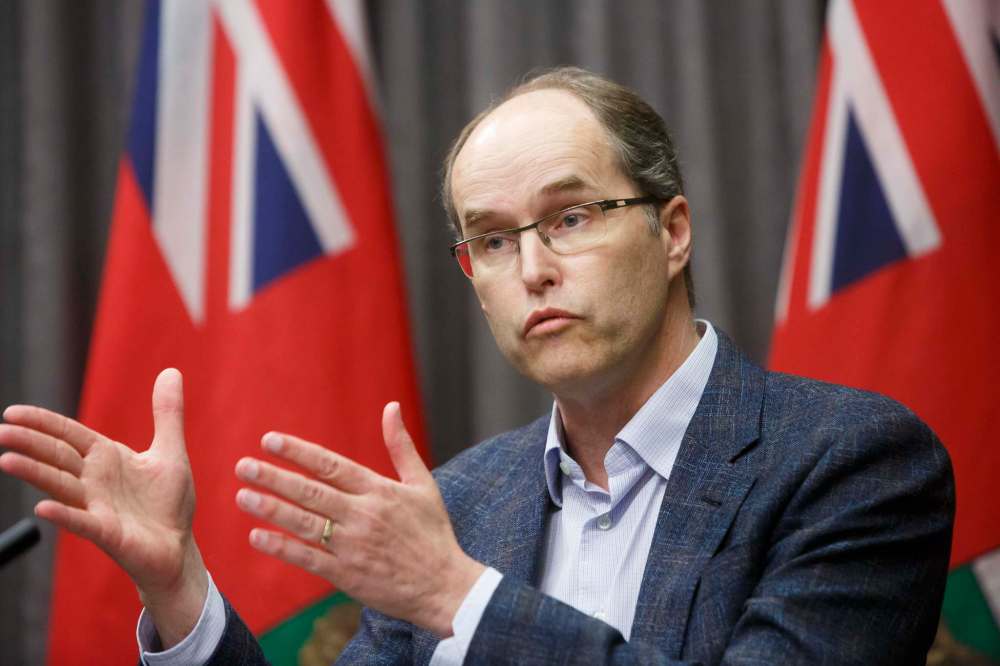Compassionate housing option deserves support
Read this article for free:
or
Already have an account? Log in here »
To continue reading, please subscribe:
Monthly Digital Subscription
$0 for the first 4 weeks*
- Enjoy unlimited reading on winnipegfreepress.com
- Read the E-Edition, our digital replica newspaper
- Access News Break, our award-winning app
- Play interactive puzzles
*No charge for 4 weeks then price increases to the regular rate of $19.00 plus GST every four weeks. Offer available to new and qualified returning subscribers only. Cancel any time.
Monthly Digital Subscription
$4.75/week*
- Enjoy unlimited reading on winnipegfreepress.com
- Read the E-Edition, our digital replica newspaper
- Access News Break, our award-winning app
- Play interactive puzzles
*Billed as $19 plus GST every four weeks. Cancel any time.
To continue reading, please subscribe:
Add Free Press access to your Brandon Sun subscription for only an additional
$1 for the first 4 weeks*
*Your next subscription payment will increase by $1.00 and you will be charged $16.99 plus GST for four weeks. After four weeks, your payment will increase to $23.99 plus GST every four weeks.
Read unlimited articles for free today:
or
Already have an account? Log in here »
Hey there, time traveller!
This article was published 26/05/2021 (1662 days ago), so information in it may no longer be current.
The problem of homelessness in Winnipeg is as obvious as the bus shelters and riverbank encampments occupied by people with no better place to go. Winnipeggers who encounter the distressing sight typically shake their heads and mutter, “Someone should do something.” Commendably, someone is.
Businessman and philanthropist John Pollard will pay half of the $8-million cost of building an apartment block in the Centennial neighbourhood that will house 47 people. The remainder will be paid by three levels of government. Construction begins this summer on the three-storey complex at 390 Ross Ave., which is scheduled to open in the fall of 2022.
Biz owner pays $4 million for inner-city housing

Posted:
The plight of Winnipeg's homeless population weighed on the mind of philanthropist John Pollard after he bought a downtown hotel and tenants had to move into rooming houses.
The different twist with this apartment block will be the residents. It’s intended for people who are living rough. Unlike many shelters options for people who are experiencing homelessness, would-be tenants won’t have to dry out from alcohol and drug use before they are considered for their own unit. The building is intended for people who are dealing with addictions, mental illnesses or domestic abuse.
The plan echoes the Housing First policy that has gained popularity in recent decades, with variations of it tried in hundreds of communities. In Winnipeg, examples include the Bell Hotel on Main Street, which closed its beverage room and, in 2011, became a low-income housing complex that accepts people without sobriety requirements, and offers on-site support staff.
The theory behind Housing First is that people experiencing homelessness are using all their physical and emotional energy to survive on the streets, and consequently many lack the stability and supports to kick their habits or treat their mental illnesses. Once they are safely ensconced in permanent housing, the hope is that they will be better able to address the root causes of their homelessness with the help of treatment and counselling.
To that end, plans for the Centennial apartment complex include counsellors on-site 24/7. Residents will live in their own micro-apartment, complete with a washroom and cooking facilities. To inspire connections among residents, the building will also include communal spaces such as television and game rooms. The province will fund the accommodations by allocating welfare and housing transfers.
Does it work? Is Housing First a realistic solution to Winnipeg’s homelessness issue?
Answers to such questions are provided by academic studies that have examined Housing First initiatives in the 35-or-so years since it began in California and became government policy in some countries.
Unfortunately, Housing First has not proven to be a magic wand. There is little evidence to support the initial sky-high optimism that, once given stable housing, most people suffering homelessness will overcome their personal problems and go on to secure employment and become contributing members of the community.
Expectations that are more realistic, however, have been met. Homelessness has obviously been addressed for the individuals who move into the residences, and this can save tax dollars when “high utilizer” people don’t require the extensive levels of police and medical services associated with living in precarious circumstances.
An advantage that is more difficult for academic studies to quantify is the respectful manner in which Housing First policy regards people who need help. Initiatives such as the planned Centennial apartment complex offer a humane alternative to the desperation and danger of life on the streets.
Housing First initiatives accept homeless people as they are, and offer them an unreserved welcome. For showing compassion to such vulnerable Winnipeggers, such projects warrant full support.










